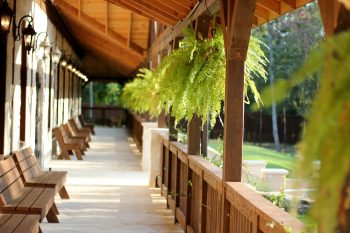Planning a Non-Denominational Funeral
If you belong to a particular religious or cultural community, there are probably guidelines for planning and holding a funeral. For thousands of years, funeral rites have been tied to religion, which may dictate everything from how many days should pass before you bury the deceased to how the body is disposed of. So, too, may religion guide who oversees the funeral rites, what readings and prayers are said, and even how the community will come together to support the family in the days and weeks that follow.
When an individual is not religious or does not belong to a particular sect, however, you might wish to hold a non-denominational funeral. These funerals do not rely on any particular beliefs about the afterlife or ask those in attendance to say any specific prayers. Because there are not as many “rules,” these funerals tend to have a variety of shapes, formats and content. However, one thing they share is they still pay tribute to the deceased in a way that he or she would have approved of.
“Traditional” Non-Denominational Funerals
Many non-denominational funerals look almost exactly like traditional funerals—just without the specific religious undertones. Often the funeral is held at the funeral home, and guests arrive to give funeral flowers, view the body and pay their respects, listen to eulogies and musical selections, read poetry, share stories of the deceased, and attend a graveside service.
The idea behind any funeral—regardless of the deceased’s religion—is for family and friends to gather and share in their grief. This does not change when the religious element is absent from the equation. Many types of secular poetry and music share similar sentiments of loss, and personal readings can draw from your own views without infringing on the family’s beliefs.
“Alternative” Non-Denominational Funerals
Not surprisingly, many people who opt for non-denominational or non-religious funerals do so because they have an alternative lifestyle or beliefs. This means that a funeral often takes on a different look and format. For example, green funerals (with their focus on earth-friendly body disposal and rituals) are much more likely to occur in a non-denominational family. So too might family members opt to skip the formal, somber funeral rites for a more casual gathering at a favorite restaurant or garden.
Almost anyone can preside over a funeral of this kind, and it can be held anyplace where it is legal to have a large gathering of people (and/or to dispose of cremated remains). The best approach is to be upfront and honest about what you are planning and what is expected of your guests. If you want the funeral to be open to the public, then a formal obituary is in order. If it is going to be private and intimate, then limit the information to a select circle. Ask people to bring photos and share stories, have a round of the deceased’s favorite drinks, or meet up in their favorite vacation spot for a combination funeral-vacation. The details are up to you.
Keep in mind, however, that some people may bring their own religious beliefs to the funeral—and that is okay, too. Prayers are usually shared to support those who are grieving rather than to honor the deceased, so try to be respectful of the way in which everyone mourns.




